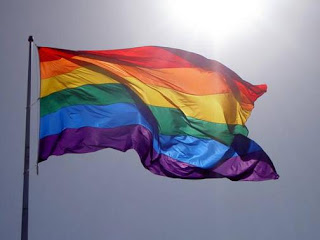Friday, December 16, 2011
Being Lost at Christmas
Tuesday, December 6, 2011
Just Plain Queer

Friday, December 2, 2011
Reflecting on World AIDS Day 2011

Invincible. Like a person of steel. Impenetrable to the forces of death. No bullet shall prosper. Blood cells of lead, T-cells that no longer need to be counted. Astounded at the power in my body, in my mind. Closed to those whose hatred grows. Evil, falls away at the touch of my fingers. No weapon formed against me shall prosper.
Every year World AIDS Day becomes a bit more personal. Each year in Detroit I know a few more people who are positive or who work in the field of preventative medicine or patient care. Rather than being sad, however, I feel privileged to be able to be a part of the fight against a disease that is stubbornly persistent despite its preventive nature.
With many diseases, we wait for a random chance. Cancer is genetic in my family. Most of my relatives do not smoke, and the stereotypical cancer-causing lifestyles do not apply to the majority of us. Somehow it still shows up. No preparation. Not a lot to talk about.
Yet HIV gives us a chance to talk, to open up to one another. This disease is challenging us to talk about sex, relationships, and love. HIV is pushing us on our vulnerabilities as communities, almost like a mirror of social ills reflected in our physical calamities. Where discrimination exists, HIV is more prevalent.
Last night I was privileged to hear the story of Jeanne White-Ginder at World AIDS Day Detroit. She reminded me of the early prejudice against children, and well, anyone with with disease. Ryan White was a hemophiliac, and became positive through treatment from that particular physical weakness. However, today we may not judge those who receive it "accidentally" or "through no fault of their own" (i.e., the law partner's quote from "Philadelphia"), but de facto judgment comes on anyone positive who does not receive treatment or compassion. As someone who works in the field of HIV treatment and prevention once said to me, "Consider all the famous people in this country, and the HIV rate. You can't tell me that Magic Johnson is the only famous person living with HIV." They don't come out for a reason.
If we were to reflect on the people in Jesus’ life, the people he talked to, lived with, and empowered to minister are, statistically, more likely to be HIV positive: the woman at the well, the Gerasene demoniac, Mary Magdalene, any one of his transient, fisherman disciples. Today they would be the most at-risk groups, the people least likely to be part of the stability of modern economic and social circles.
Unfortunately we are not invincible. We are vulnerable. But in this case we are not vulnerable to a random disease that falls on us like a lottery number. Rather, we are vulnerable to our own weaknesses: a lack of self-confidence or worth, even if just for a few moments, depression from a world formed against us, health care out of reach, or a desire just to feel good about ourselves and doing whatever we need to make that happen.
While some declare dead the moral souls of the infected, the rest of us will declare alive the moral responsibility of our collective faith. We rise and fall together. The more we love and act from the depths of our souls, the less of a chance this disease has to prosper.

